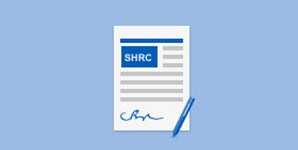The Commission's work in prisons
Independent Review of the Response to Deaths in Prison Custody
The Commission co-chaired this independent review with His Majesty's Inspectorate of Prisons for Scotland and the charity Families Outside. It was published in November 2021 following two years of research, analysis and engagement with families affected by deaths in custody, as well as prison and NHS staff. Read the key recommendations or see the full report on the HMIPS website.
Prison Inspection
The Commission has worked with His Majesty’s Inspector for Prisons in Scotland (HMIPS) to support a human rights based approach to the inspection of prisons. We provided advice in relation to the inspection standards and assisted HMIPS to undertake inspections to ensure that the human rights of prisoners are being respected. In 2018 HMIPS launched a new set of inspection standards with human rights embedded throughout, which the Commisson welcomed. Past monitoring reports can be found on the HMIPS website.
Independent Monitoring of Prisons
Independent monitors are essential in helping to ensure that prisoners’ human rights are upheld and that life in prison contributes to their rehabilitation. They are volunteers, and provide feedback on the treatment and conditions for prisoners, including conducting investigations. The service is subject to regular review through an Advisory Group, which includes representation from the Scottish Human Rights Commission, alongside other agencies and civil society organisations.
National Preventive Mechanism
People in detention are particularly vulnerable, so the international human rights framework requires States to set up national level bodies that can support efforts to prevent their ill treatment. The Commission is one of 21 members of the United Kingdom’s National Preventive Mechanism (NPM) which was established in March 2009 as part of the UK’s commitment under the Optional Protocol to the Convention against Torture and other Cruel, Inhuman or Degrading Treatment or Punishment (OPCAT).
The NPM’s role is to:
- regularly examine the treatment of persons deprived of their liberty in all places of detention under the UK’s jurisdiction and control;
- make recommendations to relevant authorities with the aim of improving the treatment and conditions of persons deprived of their liberty;
- submit proposals and observations on existing or draft legislation
The UK NPM receives technical assistance from the UN Subcommittee on Prevention of Torture and Other Cruel, Inhuman or Degrading Treatment or Punishment (SPT) and the UK government must account for the NPM’s ability to perform its functions to the SPT and other United Nations bodies.
All annual reports from the NPM can be read at their website.
In December 2020, the NPM published the United Nations Subcommittee on Prevention of Torture's report to the NPM and the NPM's response to the report.
The Scottish Sub-group
The Scottish NPM sub-group was established on 6 October 2014 and represents the interests of Scottish members of the UK NPM. The Commission is currently Chair of the Scottish Sub-group.
The sub-group meets at least twice a year and is coordinated by the Commission. The current members of the sub-group are:
- Scottish Human Rights Commission (Chair)
- HM Inspectorate of Prisons for Scotland
- The Mental Welfare Commission for Scotland
- Care Inspectorate
- Independent Custody Visitors Scotland
- HM Inspectorate of Constabulary for Scotland
Meetings are also attended by the UK NPM coordinator.

